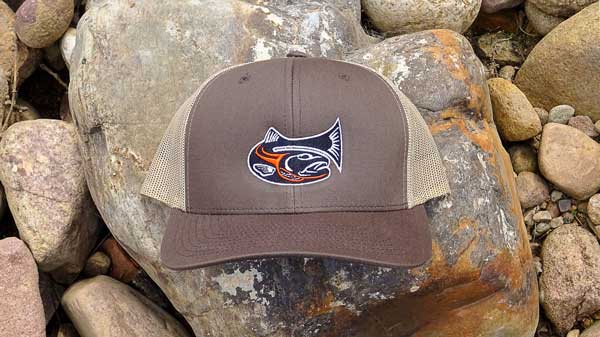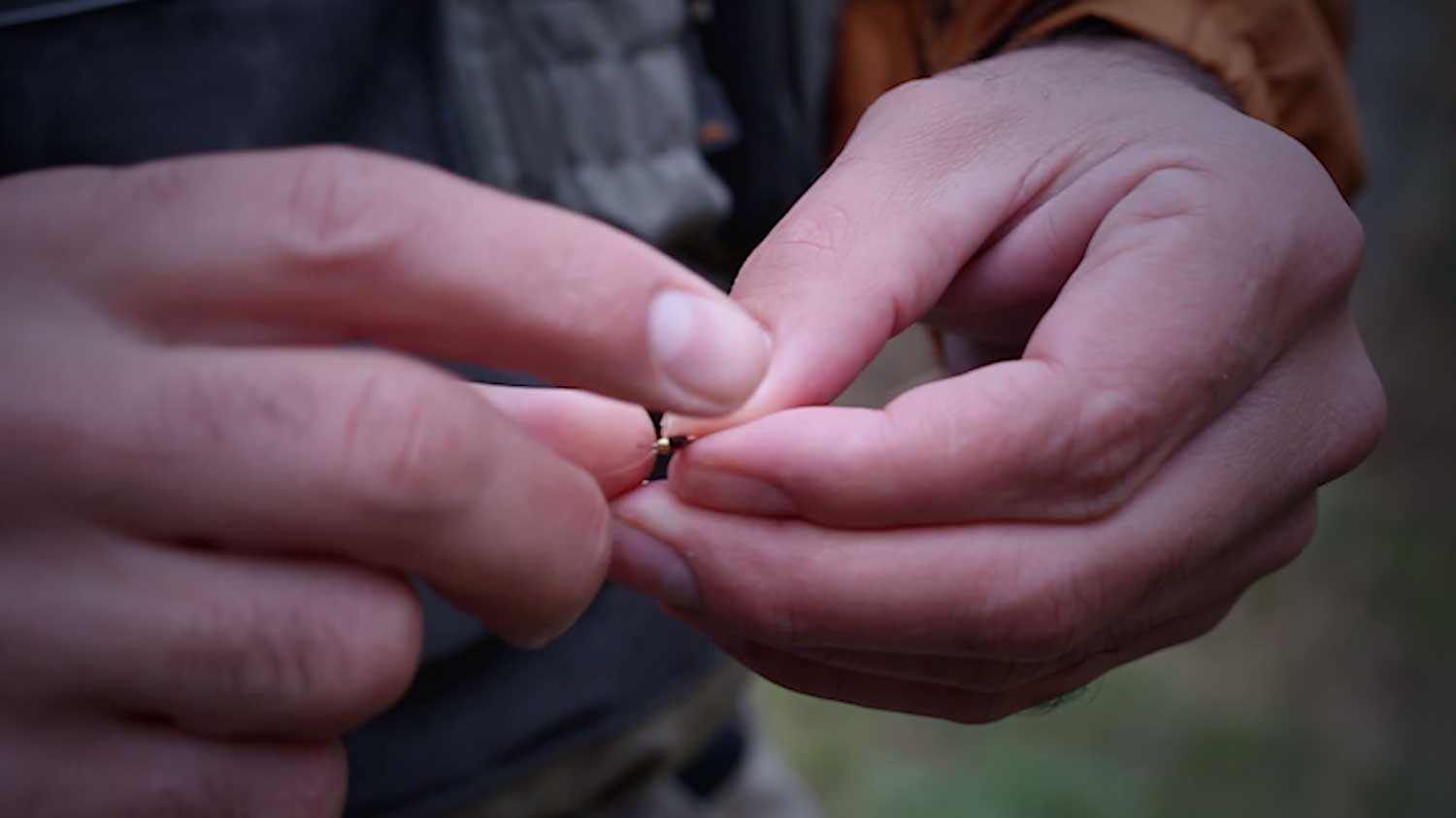
Another discussed topic on fly fishing is when was the fishing fly created? Fly fishing dates back to 200 AD. The first ever reference to the angling fishing method was by Roman author Claudius Aelianus born in 175 AD. Aelian is believed to have written the first-ever account of the fishing method that utilizes artificial flies.

Claudius Aelian’s account
In his early writings on “The Nature of Animals”, Aelian describes a unique way of fishing supposedly invented by Macedonians. He talks about a specific fish unique to a Macedonia river (the Astraeus River) that feed on flies unique to that region. The natives of that land call the fly species Hippouros. The flies look for food over the Astraeus River never going far away from the fish swimming in the river below. This makes it incredibly easy for the fish to jump and catch the flies.
The natives observe this phenomenon and get a brilliant idea to use the flies to catch fish. However, since it’s unclean for Macedonians to touch this specific fly species, they devise a way to fish without handling the flies. They decide to use red wool instead. They fasten the wool around a fishing hook then fix two small feathers found from the underside of a cock’s wattle. They use a six-foot-long rod and a line of the same length to fish. After attaching their “fake” flies, they throw the line where the flies are to trick the fish. It works and fly fishing is born.

According to Aelian's account of the first fly fishing flies, Macedonians didn't try imitating flies exactly since the actual color of flies found along the Astraeus River was yellow, yet they used red bait. There is speculation that the Hippouros flies found in the region actually changed color when flying near water which explains the color discrepancy. However, this isn’t proven.
A more detailed version of the first fly fishing flies can be found in William Radcliffe’s book “Fishing From the Earliest Times” first published in 1921. Despite being the most printed, Radcliffe’s version doesn’t give any credit to the original author. Radcliffe claims to have adapted his version from Lambert’s Angling Literature published in England in 1881. Before this, there is a Latin translation printed in 1558 but was only discovered 276 years later (in 1834).
Fly fishing in the 18th century
It wasn’t until the 18th century that fly fishing techniques became consolidated. Anglers started getting greater control over casting lines because of developments like running rings along fishing rods. The rods were becoming sophisticated and highly specialized. Jointed rods became popular mid-century. The industry became commercialized, and the industrial revolution paved the way for the large scale manufacturing of fly fishing lines.

British fly fishing continued developing in the 19th century marking the emergence of elite fly fishing clubs. This period also marks the appearance of books on fly tying and fishing techniques. Modern fly fishing may have begun in England with predominant models like the Nottingham reels; however, these modern techniques enjoyed more success in America where similar models were made by George Snyder from Kentucky in 1810.
Fly fishing expansion

The United States had less rigid attitudes towards fly fishing methods compared to Britain. Both dry and wet fly fishing were adapted. American anglers like Theodore Gordon started using fly tackle to catch trout fish in rich streams like the Willowemoc Creek. Many American fly anglers developed new fly patterns documenting this extensively, which popularized fly fishing in the United States as a sport.
New England author Albert Bigelow Paine wrote about the sport in his book “The Tent Dwellers” which was about a fishing trip he took with a friend in 1908. Fly fishing peaked in the Midwest regions like the spring creeks in Wisconsin in the 1920s.

Trout fly fishing
Trout fly fishing is an incredibly popular sport today. It is done using many different types of flies and methods. Most fly fishing techniques were initially developed for fishing trout. There are common misconceptions that all trout fly fishing is done using "dry flies" on the surface of water. In most areas known for trout fishing, nymphs are the most popular types of flies used. They are designed to drift closely on the riverbed (nymphing).
Trout fish are known to feed below the water surface 90% of the time during large bug hatches – when aquatic insects are growing wings and leave the water to lay eggs and mate). There may be exceptions to this, i.e., during summer when trout feed on beetles and ants among other terrestrial insects. However, fly fishing flies are so effective since they mimic trout’s main diet and habitat.
Dry fly fishing
There many ways of fly fishing for trout. One popular method is dry fly fishing, which is done using floating lines and flies joined by a tapered nearly-invisible leader measuring 3-5 meters long. Although trout eat 90% below the water, 10% surface-level consumption is enough to keep many anglers busy. Besides, beginner fly anglers like dry fly fishing since it easy to detect a strike.
Nymphing for trout
This method offers more success when fishing in deep waters like lakes or rivers since trout prefer feeding underwater. In the absence of surface insects or hatches, nymphs are highly recommended alongside a sinking tip line to sink the fly. Beginners can use a common nymphing technique known as dead drift, which involves casting across the river and letting the line drift downriver.
Fly fishing is among the most popular methods of catching trout. There are many other types of trout fly fishing requiring different kinds of fly fishing flies, tactics, and equipment. As a sporting or leisure activity, fly fishing requires the right fly rods which vary in length, weight, and material used. You also need the right fly reels to store your fly fishing line and get a good drag mechanism for fighting fast-moving or heavy trout. You need terminal tackles to connect your artificial flies, and most importantly, a variety of fly fishing flies to boost your chances of scoring a catch.
Drifthook fly fishing offers the best and latest variety of fly fishing kits. You can get fly fishing apparel, fly fishing hats and any other fly fishing gear for sale to allow you to catch monster trout fast in style, comfort, and safety.
About the Author
Matthew Bernhardt, a third-generation Coloradan, grew up at the forefront of the state’s fly-fishing revolution, enjoying time on the water side by side with experienced guides and lifelong anglers.
By combining his passion for fly-fishing with input from other experienced fly-fishers and guides and his fine arts degree from Colorado State University, Matthew spent five years carefully developing the Drifthook Fly Fishing System, built to help every angler catch more trout.
When he’s not spending time with his wonderful family, you’ll find him out on the water catching MONSTER trout, and he anxiously looks forward to the day when his kids are old enough to join him there.




1 comment
Joseph Janiga
Years ago I bought streamer flies with props. Now I can’t find any except for Pistol Pete’s which I don’t have an interest in. Does anyone still tie flies with small propellers?
Years ago I bought streamer flies with props. Now I can’t find any except for Pistol Pete’s which I don’t have an interest in. Does anyone still tie flies with small propellers?